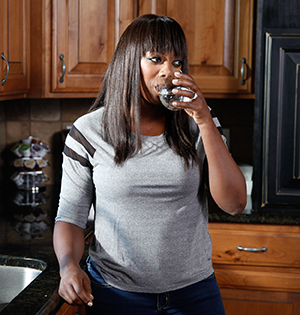Nutrition After Surgery
Nutrition After Surgery

Special note: Be sure to follow any specific post-op instructions from your surgeon, nurse, or dietitian.
Start slowly
Start off with clear liquids and soup. They are easier to digest.
Progress to a semisolid (soft) diet (mashed potatoes, applesauce, and gelatin) as you feel ready and can tolerate.
Slowly move to solid food. Don’t eat fatty, rich, or spicy foods at first.
Eat smaller amounts, more often.
Drink fluids
It’s normal to lose fluids during surgery. Rehydrating your system is important as it helps you feel better and balances the chemicals in your body called electrolytes.
Unless told not to, drink at least 6 glasses of clear liquids (such as water, apple juice, or ginger ale) a day. You may want to avoid carbonated drinks or let them lose their fizz before drinking them.
Good nutrition
Good nutrition helps your body build and repair tissue and heal wounds.
Eat a low-fat, high-protein diet or as directed by your healthcare provider.
Whole grain cereal, and the protein in foods like fish and chicken may help repair tissue affected by surgery.
Updated:
October 08, 2017
Sources:
The Role of Nutrition in Wound Care. Posthauer M. Advances in Skin & Wound Care. 2012;25(2):62-63., Wound healing and risk factors for non-healing. UpToDate
Reviewed By:
Image reviewed by StayWell art team.,Sudheendra, Deepak, MD,Taylor, Wanda L, RN, Ph.D.